the two operations are opposite ends of the spectrum. No, the compiler will most likely read it as the formal syntax indicates (see my answer for quotes). Function pointers in C need to be declared with an asterisk symbol and function parameters (same as the function they will point to) before using them in the program. And I said that is a possible explanation for the same syntax used in function interfaces. Specific to the question, or covering all cases: choose one.
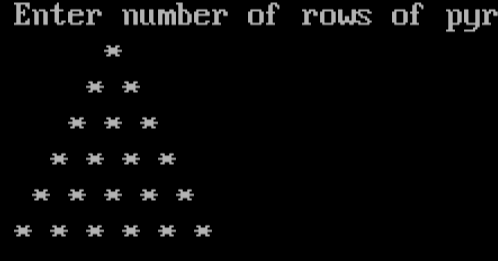 Do you observe increased relevance of Related Questions with our Machine why do some function names in C start with *, Meaning of asterisk following a member function. Considering how confusing Step 1. int *i_ptr = &input;
Do you observe increased relevance of Related Questions with our Machine why do some function names in C start with *, Meaning of asterisk following a member function. Considering how confusing Step 1. int *i_ptr = &input; Agree with Neil Butterworth. A pointer can point to any memory address, and not only to the address of some variable that you have previously declared. Whereas a C++ programmer thinks in "types" so. I never said I do that. @Adrian McCarthy: You can do only so much to make up for design flaws in C (compiler should expect type information to be together) and still maintain backwards compatibility with all C programs. Need sufficiently nuanced translation of whole thing. >>> a, b, c = [1,2,3] >>> print(a,b,c) 1 2 3 So, far, so good. for e.g int input = 7; int *i_ptr = When you want to take the address of a value, use &. Variable is not available until you set setinterfacevar= to yes in queues.conf. Note there's a difference between the unary * operator and the binary * operator (multiplication). To learn more, see our tips on writing great answers. Probably gonna get much more info getting it first hand from a book, and the K&R explanation is quite clear. Is there a difference between int *x and int* x in C++? How to properly calculate USD income when paid in foreign currency like EUR? @PEMapModder, that's just the return type of the function, in this case a pointer to.
 Which can be find as BNF in several places on the web. Never use * when you're not declaring nor dereferencing a pointer. You will have to cast such a void pointer to be able to access the data at the memory location it refers to. Also, I think it's a severe defect in C-style languages. They got it right with Java, with array declaration, but they had no constraint of caring about compatibility with C. @pulseczar: On programmer's design flaw is another programmer's feature. What are the differences between a pointer variable and a reference variable? Why should I use a pointer rather than the object itself? WebLike any variable or constant, you must declare a pointer before using it to store any variable address. Japanese live-action film about a girl who keeps having everyone die around her in strange ways, Bought avocado tree in a deteriorated state after being +1 week wrapped for sending. And that a is a pointer is not really declared at all, it's implicit by the fact, that the only thing you can actually dereference is a pointer.
Which can be find as BNF in several places on the web. Never use * when you're not declaring nor dereferencing a pointer. You will have to cast such a void pointer to be able to access the data at the memory location it refers to. Also, I think it's a severe defect in C-style languages. They got it right with Java, with array declaration, but they had no constraint of caring about compatibility with C. @pulseczar: On programmer's design flaw is another programmer's feature. What are the differences between a pointer variable and a reference variable? Why should I use a pointer rather than the object itself? WebLike any variable or constant, you must declare a pointer before using it to store any variable address. Japanese live-action film about a girl who keeps having everyone die around her in strange ways, Bought avocado tree in a deteriorated state after being +1 week wrapped for sending. And that a is a pointer is not really declared at all, it's implicit by the fact, that the only thing you can actually dereference is a pointer. Small question, why can't void (*fn)(int) mean "fn is a function that accepts an int, and returns (void *) ? Given the two excellent answers in this question, including one with an answer directly from the language designer, it's hard to really justify the close as "opinion-based". It seemed like there were lots of reasons for * in B, but I couldn't find anything for &. Still interesting, though. What does * imply for the function? reads "the dereference of pValue is an int".
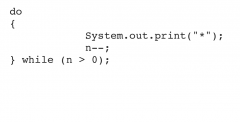 WebOf course, the well-known behavior comes in, when trying to define multiple pointers on one line (namely, the asterisk need to be put before each variable name to declare a Why does awk -F work for most letters, but not for the letter "t"? : It means that the function returns a void pointer. arrays, as already mentioned, degrade to pointers (to the first element in the array) when passed to functions; they don't preserve size information. @Adrian McCarthy: The word, "feature", in the context of software and products, is usually reserved for positive traits. What is a smart pointer and when should I use one? Assignment and pointers Not the answer you're looking for?
WebOf course, the well-known behavior comes in, when trying to define multiple pointers on one line (namely, the asterisk need to be put before each variable name to declare a Why does awk -F work for most letters, but not for the letter "t"? : It means that the function returns a void pointer. arrays, as already mentioned, degrade to pointers (to the first element in the array) when passed to functions; they don't preserve size information. @Adrian McCarthy: The word, "feature", in the context of software and products, is usually reserved for positive traits. What is a smart pointer and when should I use one? Assignment and pointers Not the answer you're looking for? Also there is the school of asterisk in the middle, @v.oddou The asterisk is not a qualifier like, Yes, this was the case that helped me choose, Only for this one, narrow, unconventional definition of "value semantics". Do (some or all) phosphates thermally decompose? This modified text is an extract of the original, Common C programming idioms and developer practices, Iteration Statements/Loops: for, while, do-while, Literals for numbers, characters and strings, void* pointers as arguments and return values to standard functions. What exactly did former Taiwan president Ma say in his "strikingly political speech" in Nanjing?
 Why do many functions that return structures in C, actually return pointers to structures? How to solve this seemingly simple system of algebraic equations? Again, arrays throw a bit of a monkey wrench into the works, but we'll deal with the normal cases first. I avoid declaring multiple variables in one statement due to the resulting visual ambiguity (int* i, j). In the following, line 1 declares var1 as a pointer to a long and var2 as a long and not a pointer to a long. The best answers are voted up and rise to the top, Not the answer you're looking for?
Why do many functions that return structures in C, actually return pointers to structures? How to solve this seemingly simple system of algebraic equations? Again, arrays throw a bit of a monkey wrench into the works, but we'll deal with the normal cases first. I avoid declaring multiple variables in one statement due to the resulting visual ambiguity (int* i, j). In the following, line 1 declares var1 as a pointer to a long and var2 as a long and not a pointer to a long. The best answers are voted up and rise to the top, Not the answer you're looking for? 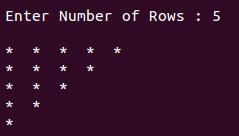 K&R considered this to be a (positive) feature, not a design flaw. Need sufficiently nuanced translation of whole thing, Fermat's principle and a non-physical conclusion. I'm saying the C compiler should have been originally written with all type information together. Even thought this doesn't answer the question exactly, it's still on topic and presents valuable arguments for a more objective point of view. Making statements based on opinion; back them up with references or personal experience. "you misleadingly suggest that all of i, j and k are pointers to int." Well because Python 2 uses . The difference arose because C++ added a stronger type system on top of C. A C programmer usually thinks in terms of "values," so. And thus ! Makes the whole thing look too much like multiplication to me. Split a CSV file based on second column value, using wait (bash posix) and fail if one process fails in a script, Prescription medication requirements to UK and Ireland. When you declare an array parameter in a function, you can just as easily declare it is a pointer (it means the same thing). But, a variable is not really just a variable. What does the exclamation mark do before the function? Get monthly updates about new articles, cheatsheets, and tricks. The asterisk is an operator in Python that is commonly known as the multiplication symbol when used between two numbers ( 2 * 3 will produce 6) but when it is inserted at the beginning of a variable, such as an iterable, like a list or dictionary, it expands the contents of that variable. Browse other questions tagged, Where developers & technologists share private knowledge with coworkers, Reach developers & technologists worldwide, It would be very interesting question to ask the person who wrote the code why they put the asterisk next to the name of the function, rather than, Rational argument: because we're used to writing "int *a", so it seems more consistent to do the same for functions, In addition to what Guillaume wrote the comming out of the function is a pointer that is to void. Why should I use a pointer rather than the object itself? Ok, looks like your post got editted double foo[4]; It's sort of neat, since you can imagine there isn't any actual pointer types. 4 how do I reregister with a sip server properly? Some people like to keep the type together: Other people say that it should go next to the variable because of the following: Over time you will just overlook this and accept both variations. What is the scope of variables in JavaScript? I too follow this convention. [duplicate]. Why is the asterisk before the variable name, rather than after the type? But a void * is a pointer type that refers to a memory location of unspecified type. :), "if you want to define multiple pointers using the , operator". However, the fact that I've seen pointers declared in two different ways leads me to believe that there's a reason behind it. BTW I usually read the. As it currently stands, this question is not a good fit for our Q&A format. There's absolutely no confusion if you do, @MichaelGG You've got the tail wagging the dog there. Is there a difference between node* next and node *next? The common example is a swap function: The formal parameters x and y are distinct objects from a and b, so changes to x and y are not reflected in a and b. Thanks for contributing an answer to Stack Overflow!
K&R considered this to be a (positive) feature, not a design flaw. Need sufficiently nuanced translation of whole thing, Fermat's principle and a non-physical conclusion. I'm saying the C compiler should have been originally written with all type information together. Even thought this doesn't answer the question exactly, it's still on topic and presents valuable arguments for a more objective point of view. Making statements based on opinion; back them up with references or personal experience. "you misleadingly suggest that all of i, j and k are pointers to int." Well because Python 2 uses . The difference arose because C++ added a stronger type system on top of C. A C programmer usually thinks in terms of "values," so. And thus ! Makes the whole thing look too much like multiplication to me. Split a CSV file based on second column value, using wait (bash posix) and fail if one process fails in a script, Prescription medication requirements to UK and Ireland. When you declare an array parameter in a function, you can just as easily declare it is a pointer (it means the same thing). But, a variable is not really just a variable. What does the exclamation mark do before the function? Get monthly updates about new articles, cheatsheets, and tricks. The asterisk is an operator in Python that is commonly known as the multiplication symbol when used between two numbers ( 2 * 3 will produce 6) but when it is inserted at the beginning of a variable, such as an iterable, like a list or dictionary, it expands the contents of that variable. Browse other questions tagged, Where developers & technologists share private knowledge with coworkers, Reach developers & technologists worldwide, It would be very interesting question to ask the person who wrote the code why they put the asterisk next to the name of the function, rather than, Rational argument: because we're used to writing "int *a", so it seems more consistent to do the same for functions, In addition to what Guillaume wrote the comming out of the function is a pointer that is to void. Why should I use a pointer rather than the object itself? Ok, looks like your post got editted double foo[4]; It's sort of neat, since you can imagine there isn't any actual pointer types. 4 how do I reregister with a sip server properly? Some people like to keep the type together: Other people say that it should go next to the variable because of the following: Over time you will just overlook this and accept both variations. What is the scope of variables in JavaScript? I too follow this convention. [duplicate]. Why is the asterisk before the variable name, rather than after the type? But a void * is a pointer type that refers to a memory location of unspecified type. :), "if you want to define multiple pointers using the , operator". However, the fact that I've seen pointers declared in two different ways leads me to believe that there's a reason behind it. BTW I usually read the. As it currently stands, this question is not a good fit for our Q&A format. There's absolutely no confusion if you do, @MichaelGG You've got the tail wagging the dog there. Is there a difference between node* next and node *next? The common example is a swap function: The formal parameters x and y are distinct objects from a and b, so changes to x and y are not reflected in a and b. Thanks for contributing an answer to Stack Overflow! 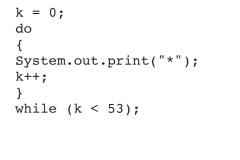 It doesn't matter. Anyone else who's confused on this point can see the clarification in these comments. His explanation that you linked to conveniently ignores arrays and function pointers where type information surrounds the identifier. In that case you'd declare it as int** bX = &aX, but this is a more advanced topic. memory address) - this is the hex value. var functionName = function() {} vs function functionName() {}.
It doesn't matter. Anyone else who's confused on this point can see the clarification in these comments. His explanation that you linked to conveniently ignores arrays and function pointers where type information surrounds the identifier. In that case you'd declare it as int** bX = &aX, but this is a more advanced topic. memory address) - this is the hex value. var functionName = function() {} vs function functionName() {}. 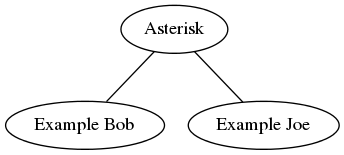 This is technically correct, most people like to see/read it that way and that is the way how modern C standards would define it (note that language C itself predates all the ANSI and ISO standards). What is the Difference Between a Pointer and a Reference C++, Python function parameter with asterisk | magical part, Golang Tutorial #19 - Pointers & Derefrence Operator (& and *), C/C++ : Passing a Function as Argument to another Function | Pointers to function, Building a Complete Ruby Parser [part 2] | Parser Hacking, Asterisk Tutorial 13 - Asterisk Variables [english], The asterisk (*) operator in Python - Advanced Python 19 - Programming Tutorial, The second style seems more intuitive in general, but the former is the way to go to avoid type-related bugs in code. One is the pointer (i.e. Is there any standard way of declaring pointers? What are the differences between a pointer variable and a reference variable? So I contend it's superior to annex the * to the variable name. This was because most keyboards din't have or keys and not equal was actually the word NEQV (see The BCPL Reference Manual). You don't know what it points to - it's up to you to cast the pointer to a proper type that you can later use. Why does this code to modify a string not work? You should read a good tutorial/book on pointers. It comes natural as being a pointer is part of the type. I'm new to programming and I'm trying to wrap my head around the idea of 'pointers'. The general form of a pointer variable declaration is type *var-name; Here, type is the pointer's base type; it must be a valid C data type and var-name is the name of the pointer variable. New in Asterisk 1.4: The MEMBERINTERFACE channel variable holds information about which queue member received the call. If I may hazard a guess as to why - its because of where the keys are. When used within a variable declaration, the value on the right hand side of the equals side should be a pointer value to an address in memory. Why would I want to hit myself with a Face Flask? oath or affirmation of citizenship form pdf Menu Toggle I'm also saying that when we can put all of the type information on the left (e.g., About how to read the type: I personally prefer. If you have that many variables stacked together in one function, maybe is that function doing too much? I find it odd that the creators chose the asterisk (*) as the symbol for pointers rather than a symbol that actually looks like a pointer (->). Main Menu. I think putting the asterisk adjacent to the name of the variable is clearer. *p. Yeah that can be quite complicated since the * is used for many different purposes in C/C++. The * refers to the return type of the function, which is void *. omg, c++ always shows something new to me :). In C, why is the asterisk before the variable name, rather than after the type? you can actually have multiple levels on indirection (. for e.g, for e.g if you declare like int *ptr = 7; its wrong(not an error) as pointers ptr expects valid address but you provided constant(7).
This is technically correct, most people like to see/read it that way and that is the way how modern C standards would define it (note that language C itself predates all the ANSI and ISO standards). What is the Difference Between a Pointer and a Reference C++, Python function parameter with asterisk | magical part, Golang Tutorial #19 - Pointers & Derefrence Operator (& and *), C/C++ : Passing a Function as Argument to another Function | Pointers to function, Building a Complete Ruby Parser [part 2] | Parser Hacking, Asterisk Tutorial 13 - Asterisk Variables [english], The asterisk (*) operator in Python - Advanced Python 19 - Programming Tutorial, The second style seems more intuitive in general, but the former is the way to go to avoid type-related bugs in code. One is the pointer (i.e. Is there any standard way of declaring pointers? What are the differences between a pointer variable and a reference variable? So I contend it's superior to annex the * to the variable name. This was because most keyboards din't have or keys and not equal was actually the word NEQV (see The BCPL Reference Manual). You don't know what it points to - it's up to you to cast the pointer to a proper type that you can later use. Why does this code to modify a string not work? You should read a good tutorial/book on pointers. It comes natural as being a pointer is part of the type. I'm new to programming and I'm trying to wrap my head around the idea of 'pointers'. The general form of a pointer variable declaration is type *var-name; Here, type is the pointer's base type; it must be a valid C data type and var-name is the name of the pointer variable. New in Asterisk 1.4: The MEMBERINTERFACE channel variable holds information about which queue member received the call. If I may hazard a guess as to why - its because of where the keys are. When used within a variable declaration, the value on the right hand side of the equals side should be a pointer value to an address in memory. Why would I want to hit myself with a Face Flask? oath or affirmation of citizenship form pdf Menu Toggle I'm also saying that when we can put all of the type information on the left (e.g., About how to read the type: I personally prefer. If you have that many variables stacked together in one function, maybe is that function doing too much? I find it odd that the creators chose the asterisk (*) as the symbol for pointers rather than a symbol that actually looks like a pointer (->). Main Menu. I think putting the asterisk adjacent to the name of the variable is clearer. *p. Yeah that can be quite complicated since the * is used for many different purposes in C/C++. The * refers to the return type of the function, which is void *. omg, c++ always shows something new to me :). In C, why is the asterisk before the variable name, rather than after the type? you can actually have multiple levels on indirection (. for e.g, for e.g if you declare like int *ptr = 7; its wrong(not an error) as pointers ptr expects valid address but you provided constant(7).  upto declaration it's okay but when you go for dereferencing it like *ptr it gives problem because it doesn't know what is that data/value at 7 location. It is important to mind your P's and Q's, so to speak, when dealing with pointers. Consider, "it may seem obvious that both are of type int*" Not so obvious, this is a naive argument. One does not see pointers in C# very often. Webhomes for sale in valle del sol, somerton, az. Actually, you have it down pat, there's nothing more you need to know :-). WebCoding example for the question What is the difference between single asterisk and double asterisks before variable in python? it may seem obvious that both are of type int*, but that is not correct as myVariable2 has type int. @Lundin Yes, the compiler reads it as the syntax contaned in the standard dictates. So the issue of multiple declarations on a single line never comes up in any code I write: One declaration per line. Be mindful of when you're using the asterisk, and what it means when you use it there. Why is my multimeter not measuring current? What is the difference between const int*, const int * const, and int const *? Writing to *x is different from writing to x; we're not updating the value in x itself, we get a location from x and update the value in that location. Your talking about what is at the address of a now tho, and the *p_a is a pointer to whatever is at the &a (address of a). The solution isn't to obfuscate the way you declare pointers, the solution is to. would be declaring an instance variable of type TheType. In line 2, p3 is declared as a pointer to a pointer to an int. b was designed to be run with Plagiarism flag and moderator tooling has launched to Stack Overflow! Why are charges sealed until the defendant is arraigned? Improving the copy in the close modal and post notices - 2023 edition. Connect and share knowledge within a single location that is structured and easy to search. Avoiding multiple declarations on one line is just another way to say you remember this rule. Putting it in the middle (as someType * somePtr) is trying to avoid committing to either one. When you're not declaring (or multiplying), * is used to dereference a pointer variable: When you want an existing pointer variable to hold address of other variable, you don't use *, but do it like this: A common confusion among C-programming newbies arises when they declare and initialize a pointer variable at the same time. to call a method? Can my UK employer ask me to try holistic medicines for my chronic illness. agreed. If I think of function pointer declaration (. You can also read this line as follows: The dereferenced value of a is of type int. There is also no confusion if you know the rules of the language.
upto declaration it's okay but when you go for dereferencing it like *ptr it gives problem because it doesn't know what is that data/value at 7 location. It is important to mind your P's and Q's, so to speak, when dealing with pointers. Consider, "it may seem obvious that both are of type int*" Not so obvious, this is a naive argument. One does not see pointers in C# very often. Webhomes for sale in valle del sol, somerton, az. Actually, you have it down pat, there's nothing more you need to know :-). WebCoding example for the question What is the difference between single asterisk and double asterisks before variable in python? it may seem obvious that both are of type int*, but that is not correct as myVariable2 has type int. @Lundin Yes, the compiler reads it as the syntax contaned in the standard dictates. So the issue of multiple declarations on a single line never comes up in any code I write: One declaration per line. Be mindful of when you're using the asterisk, and what it means when you use it there. Why is my multimeter not measuring current? What is the difference between const int*, const int * const, and int const *? Writing to *x is different from writing to x; we're not updating the value in x itself, we get a location from x and update the value in that location. Your talking about what is at the address of a now tho, and the *p_a is a pointer to whatever is at the &a (address of a). The solution isn't to obfuscate the way you declare pointers, the solution is to. would be declaring an instance variable of type TheType. In line 2, p3 is declared as a pointer to a pointer to an int. b was designed to be run with Plagiarism flag and moderator tooling has launched to Stack Overflow! Why are charges sealed until the defendant is arraigned? Improving the copy in the close modal and post notices - 2023 edition. Connect and share knowledge within a single location that is structured and easy to search. Avoiding multiple declarations on one line is just another way to say you remember this rule. Putting it in the middle (as someType * somePtr) is trying to avoid committing to either one. When you're not declaring (or multiplying), * is used to dereference a pointer variable: When you want an existing pointer variable to hold address of other variable, you don't use *, but do it like this: A common confusion among C-programming newbies arises when they declare and initialize a pointer variable at the same time. to call a method? Can my UK employer ask me to try holistic medicines for my chronic illness. agreed. If I think of function pointer declaration (. You can also read this line as follows: The dereferenced value of a is of type int. There is also no confusion if you know the rules of the language. Besides variable declaration, the same debate applies to typedefs too of whether the pointer logically belongs with type or the thing being defined (a), I'm not sure but isn't there an actual pragmatic reason related to how the language grammar creates the parsing of the asterisk ? Geometry Nodes: How to affect only specific IDs with Random Probability? for derefrencing a pointer like its predecessor BCPL did? The asterisk is always bound to the element written right of it, it belongs to the element right to it. I've used both declarations before, and I know that the compiler doesn't care which way it is. Related questions. Why does C use the asterisk for pointers? Even as I use it, however, it feels a bit silly to pretend C declaration syntax works other than it does, by placing the asterisk next to the type rather than the variable to which it is syntactically bound. It means that the function returns a void*. .. if you're put in a situation where you just have to do it alike, it helps to have reasoning for it. It wouldn't make sense to me that the type is int and the name is *i. *i is the int. Beautify code execution. SO has become the number 1 resource when searching on Google. Correction: therefore, you should never declare more than one variable on a single line. What is the function of an asterisk before a function name? It is saying, essentially, "the type of data pointed to by somePtr is someType". Why can a transistor be considered to be made up of diodes? It has influences and is based on something that came before. The compiler sees no difference at all of course. Is this a fallacy: "A woman is an adult who identifies as female in gender"? Improving the copy in the close modal and post notices - 2023 edition. What is the difference between public, private, and protected inheritance in C++? You have pointers and values: int* p; // variable p is pointer to integer type You can take the address of a function without using &, and you can call a function pointer without using *. Can anyone explain this logic? Pointers allow you to refer directly to values in memory, and allow you to modify elements that would otherwise only You're not giving enough credit to these answers. Critical issues have been reported with the following SDK versions: com.google.android.gms:play-services-safetynet:17.0.0, Flutter Dart - get localized country name from country code, navigatorState is null when using pushNamed Navigation onGenerateRoutes of GetMaterialPage, Android Sdk manager not found- Flutter doctor error, Flutter Laravel Push Notification without using any third party like(firebase,onesignal..etc), How to change the color of ElevatedButton when entering text in TextField. a teletype model 33 teletype. Why can a transistor be considered to be made up of diodes? How do pointer-to-pointers work in C? Improving the copy in the close modal and post notices - 2023 edition. Why is it that when I cout << pointerToInteger; the output is a hexdecimal value, BUT when I use cout << *pointerToInteger; the output is 5 ( x=5). Also, int * i; looks a bit like multiplication to me. Since int i = 5; and int i; i = 5; give the same result, some of them might thought int *p = &i; and int *p; *p = &i; give the same result too. Site design / logo 2023 Stack Exchange Inc; user contributions licensed under CC BY-SA. B-Movie identification: tunnel under the Pacific ocean. And I have never seen anyone writing. History
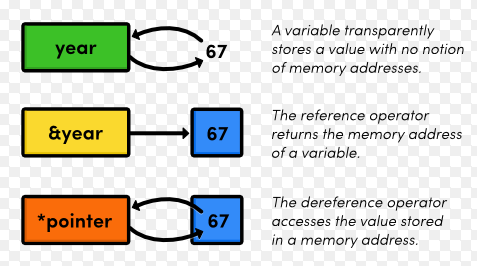 Why C doesn't have better notation for pointers? Pointers in C: when to use the ampersand and the asterisk? This is considered poor programming style since it leads to bugs when combining pointers and variables of the same type. The exceptions to this rule are when the array expression appears as an operand of either the & or sizeof operators, or when it is a string literal being used as an initializer in a declaration. Does NEC allow a hardwired hood to be converted to plug in? No, the compiler most definitely reads the type as, "the * binds more closely to the variable than to the type" This is a naive argument. b got * from earlier languages - some assembly, At this point, the question is as uninteresting as "why does python 3 use . WebPointer declarations in C++: placement of the asterisk. This function returns void *, a pointer to some memory location of unspecified type. I'm curious if either method is more readable or logical in some way that I'm missing. arrays "degrade" to pointers when you pass them to functions. Site design / logo 2023 Stack Exchange Inc; user contributions licensed under CC BY-SA. The question is not about whether one should write the asterisk here or there. So we put the asterisk next to the variable: int *x, y; I think this helps make Continue Reading 40 5 Ken Gregg Working with C/C++/C# and assembly languages for decades Author has 7K answers and 35.9M answer views 5 y However, there is a strong argument for int *i because when using the former style, you still must remember the multiple declaration rule: Because you must remember this rule, you don't gain any simplicitlybut I wouldn't say it's more complex, either. Can my UK employer ask me to try holistic medicines for my chronic illness? For the same reason. What asterisk position means in C functions building? Rarely does a language exist from nothing. What motivates syntactic preference regarding pointer declaration in C/C++?
Why C doesn't have better notation for pointers? Pointers in C: when to use the ampersand and the asterisk? This is considered poor programming style since it leads to bugs when combining pointers and variables of the same type. The exceptions to this rule are when the array expression appears as an operand of either the & or sizeof operators, or when it is a string literal being used as an initializer in a declaration. Does NEC allow a hardwired hood to be converted to plug in? No, the compiler most definitely reads the type as, "the * binds more closely to the variable than to the type" This is a naive argument. b got * from earlier languages - some assembly, At this point, the question is as uninteresting as "why does python 3 use . WebPointer declarations in C++: placement of the asterisk. This function returns void *, a pointer to some memory location of unspecified type. I'm curious if either method is more readable or logical in some way that I'm missing. arrays "degrade" to pointers when you pass them to functions. Site design / logo 2023 Stack Exchange Inc; user contributions licensed under CC BY-SA. The question is not about whether one should write the asterisk here or there. So we put the asterisk next to the variable: int *x, y; I think this helps make Continue Reading 40 5 Ken Gregg Working with C/C++/C# and assembly languages for decades Author has 7K answers and 35.9M answer views 5 y However, there is a strong argument for int *i because when using the former style, you still must remember the multiple declaration rule: Because you must remember this rule, you don't gain any simplicitlybut I wouldn't say it's more complex, either. Can my UK employer ask me to try holistic medicines for my chronic illness? For the same reason. What asterisk position means in C functions building? Rarely does a language exist from nothing. What motivates syntactic preference regarding pointer declaration in C/C++? If this memory address is not mapped within the memory space of your program, then any read or write operation using *a will most likely cause your program to crash, due to a memory access violation. rev2023.4.5.43379. C (and C++) doesn't have a pointer type. To be sure, it's not an easy topic to search Nth duplicate of a raft of older questions, like. Because the * in that line binds more closely to the variable than to the type: As @Lundin points out below, const adds even more subtleties to think about. Considering how confusing dereferencing and function pointers can be, is there a historical, or even practical, reason for using the asterisk? In general, you shouldn't motivate a certain coding style based on some other unrelated, bad and dangerous coding style. http://www.stroustrup.com/bs_faq2.html#whitespace, Placement of the asterisk in pointer declarations. For repeatedly extending the list-type containers. 250 Why is the asterisk before the variable name, rather than after the type? This As someone who doesn't develop in C/C++, I felt doing so would stray too far from my field of expertise. Why is my multimeter not measuring current? If the parser read it the way you are suggesting, then we'd be able to write, Rather amusingly, if you read that article I linked, there's a short section on the topic of, @Lundin "Read it the way of the compiler, you must" The compiler groups that as. Understanding pointers is complicate at first, you have to make exercises and Read Dan Olson's response. By clicking Accept all cookies, you agree Stack Exchange can store cookies on your device and disclose information in accordance with our Cookie Policy.